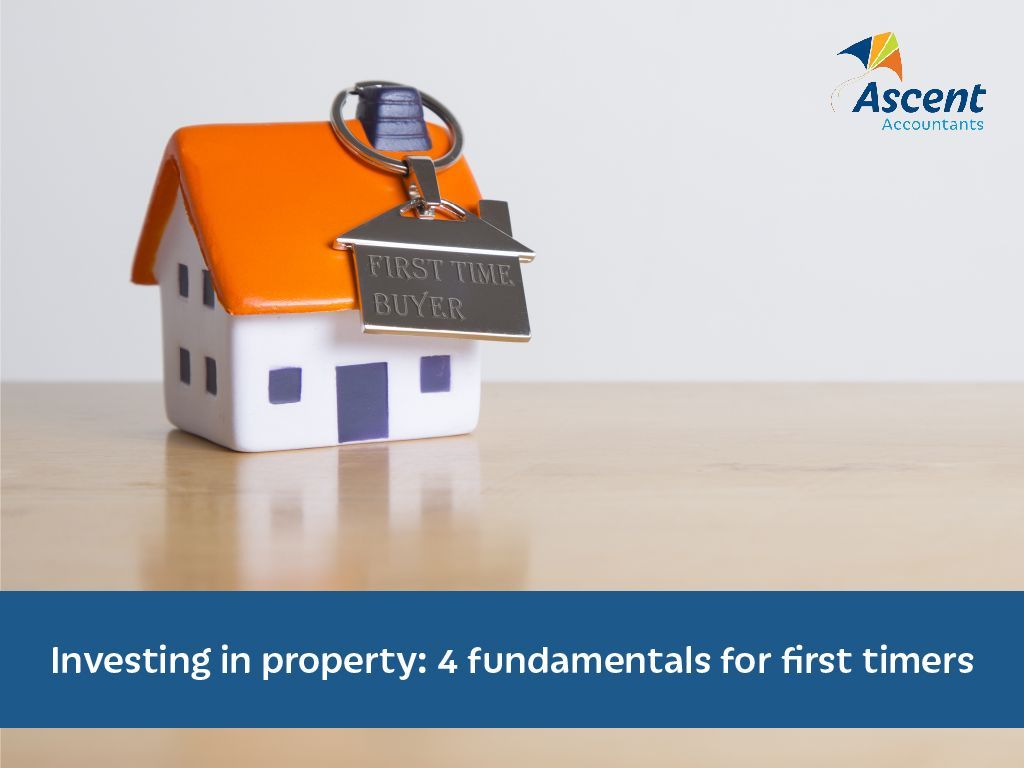Investing in property: 4 fundamentals for first timers

Investing in property can seem like a daunting task, especially if it’s your first time.
It might feel reassuring to know that investment properties are generally considered one of the more stable and lower-risk investments, making them a goal of many investors. Traditionally less volatile, they typically increase in value over time, provide income from renting to tenants and offer numerous tax benefits.
However, there is a risk your property won’t deliver the returns you expect or could even lose money. And at such a steep entry point, you need to be smart about your search for the ideal investment property.
Many factors will influence your decision, but it’s important to understand some of the fundamental tenets of investing in property.
1. Research, research, research.
Do your homework.
It can’t be overstated. Just because property is a stable form of investment, there is a spectrum of returns (via cashflow and capital growth) to be earned from different properties and locations.
It’s so important to look beyond the listing price in finding a property. Gather as much information as you can, and do extensive research and due diligence on market trends over time, as this will be your best bet to mitigate the risks of investing in property. Capitalise on fluctuations that are likely to affect property values, such as council rezonings, changes to flight paths or demographic shifts.
Don’t restrict yourself due to familiarity bias (picking a place in a local suburb), a different location than your current home will diversify the risk of your overall asset portfolio.
If you aren’t confident in your ability to undertake this research or would prefer to be extra thorough, you can engage a buyer’s agent (a property buying professional) to help you find suburbs which offer strong potential for investors.
2. Look for land.
Land appreciates, buildings depreciate.
In further hedging your investment risk, look to properties with a generous land component. While apartments, townhouses and condos have their own advantages (often proximity to beaches, CBD, etc.), historically homes with a decent amount of land grow more in value over time.
This is because land is limited in supply and always in demand. Conversely, buildings decline in value over time because they deteriorate, need repairs or because their style/function no longer appeals to buyers’ tastes. It’s why many old properties often sell at no more than land value.
Of course, this is dependent on location. A huge block of land in the middle of nowhere would hardly compare to a block of land close to the city, in terms of demand. In a good location, first-time property investors stand to gain better long-term capital growth by purchasing a house with a decent amount of land.
3. Have a buffer.
Unfortunately, the paying doesn’t stop when you’ve covered the deposit, loan-application fee, stamp duty, conveyancing costs and inspection fees. So focused on reaching the deposit and securing a loan, that the ongoing costs of a house are often and regrettably overlooked.
Be financially prepared for ongoing costs when purchasing an investment property. You’ll need a comfortable cash buffer to cover council rates, strata fees, property management fees, vacancies, insurance, repairs and maintenance. Cash flow can vary quite a bit from month to month, so ensure you have enough savings to prepare for these short-term fluctuations likely to affect your returns.
4. Long-term planning.
What are your plans beyond the settlement date? Your short and long-term goals will help you to determine if a property is suitable for you.
You may want a solid, long-term investment that slowly and steadily gains value over decades to come, or perhaps you’ll want a fixer-upper and are prepared to outlay a little more cash upfront to flip it for a quicker return. Your property will be a huge, illiquid expense, so take the time to consider whether it meets your personal needs and financial circumstances.
You’ll also want to consider the name in which you buy the investment property (i.e., the name on the certificate of title) as this can affect your overall investment strategy, e.g., to minimise risk. Before purchasing your investment property, it’s worth getting advice on how to ensure it is structured optimally for tax benefits and to reduce your amount of fees.
Choose Ascent.
If you’re thinking of investing in property,
contact our team at Ascent Accounting to ensure you’re financially set up to get the most out of your investment.
Need help with your accounting?








